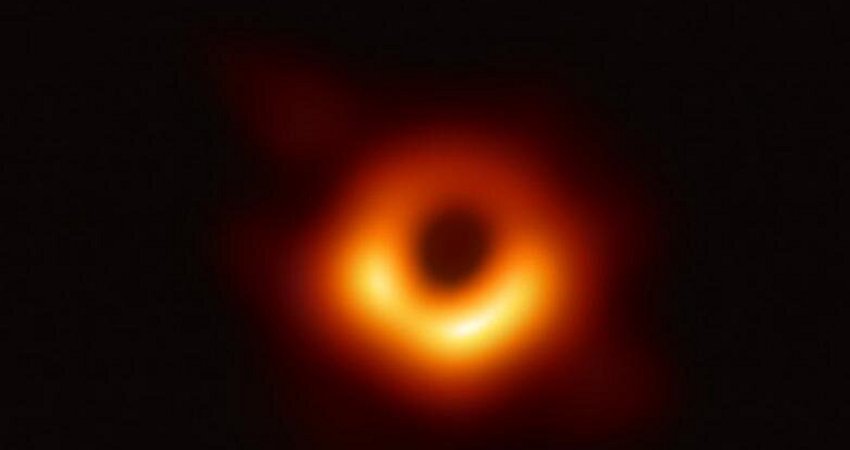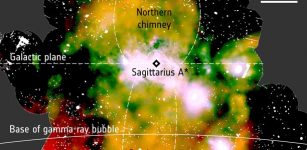Another Solar Flare In ‘Carrington’ Class Could Destroy Our Civilization
A. Sutherland – MessageToEagle.com – The Sun is both our life bringer and destroyer.
On April 23rd (only two days ago), a dark filament of magnetism on the Sun exploded. NASA’s Solar Dynamics Observatory monitored the event. A new analysis shows that debris from the explosion will not hit Earth, not this time, but the solar activities are unpredictable.
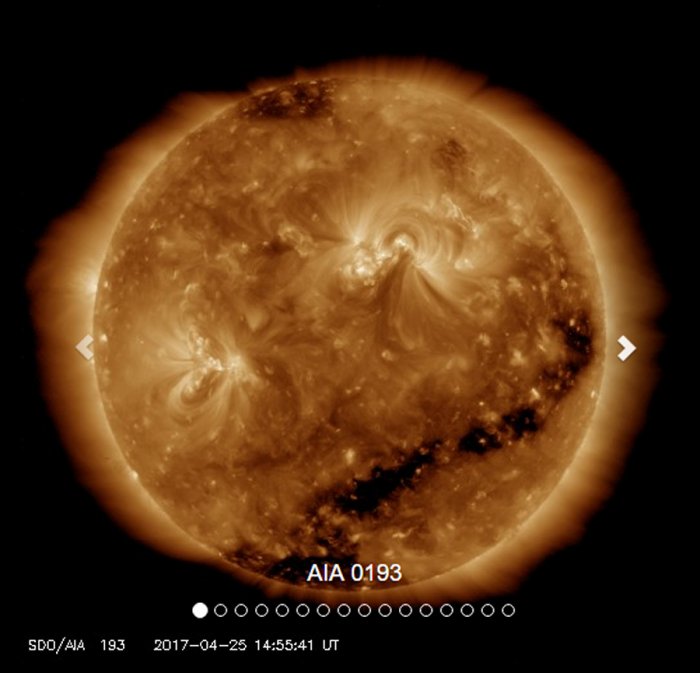
We often wonder, how dangerous are the biggest solar flares? The largest solar flares are classified as x-class flares and can produce as much energy as a billion hydrogen bombs! They can be viewed as huge explosions in the solar system.
Carrington Event – Giant And Dangerous Outburst From The Sun
Especially one terrible incident reminds us that the Sun – with its all fascinating but also very dangerous activities – can be very destructive.
This incident is known as the “Carrington Event” and it happened almost 158 years ago. Our planet Earth was attacked by a dangerous outburst from our Sun, located approximately 93 million miles away traveled through space in 17-hours, which is much faster (normally it takes 3-4 days).
Just before dawn the next day, skies all over the Earth were covered with green, red and purple auroras so extremely brilliant that their light could brighten any text in a newspaper or a book and make them readable as in daylight.
See also:
The Carrington Event – Biggest Solar Storm In Earth’s History
How Solar Flares Affect Human Health – Our Mind And Body
Solar Storms Trigger Unexplained Phenomenon Close To Earth
The next morning, the CME reached our planet; it crashed into Earth’s magnetic field, causing the global bubble of magnetism that surrounds our planet – to shake. About 160 years ago, no one knew such tremendous solar fares existed until that September morning 1859.
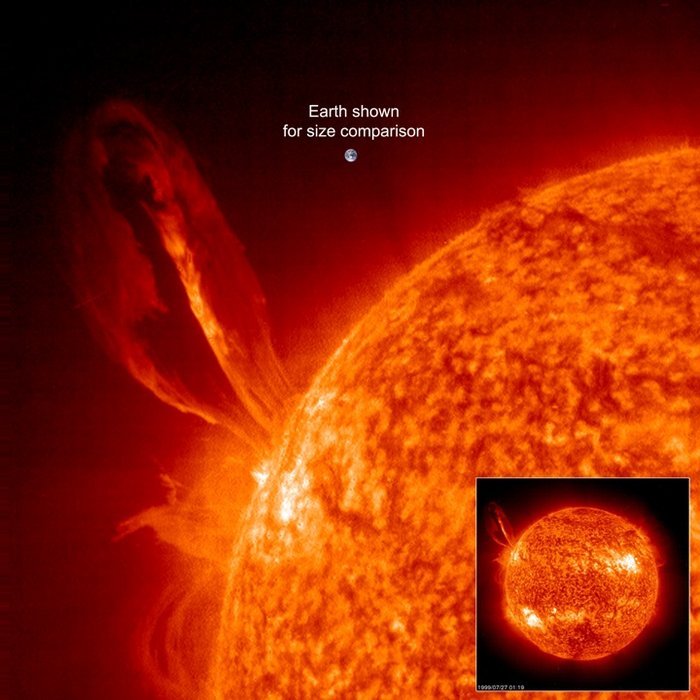
Fortunately, in 1859, there were no such sophisticated technologies developed like those we have today and the telegraph network was the only technology endangered by space weather.
Four years ago, thanks to observations by Kepler’s telescope, super flashes of stars, about 10 thousand times stronger than those that occurred in 1859. Our Sun can also produce such energy.
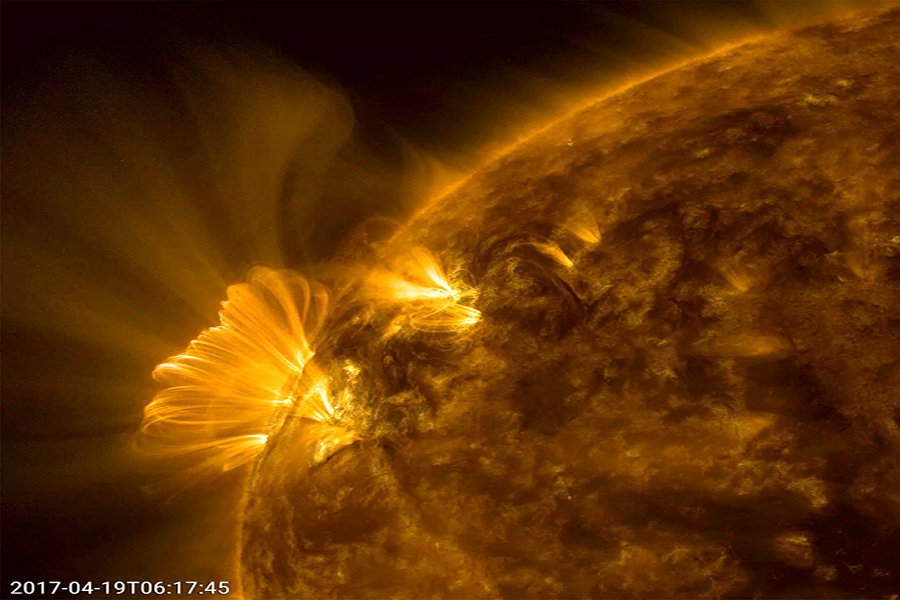
What Can We Expect From The Sun In The Future?
Solar eruptions “send” into space the charged particles that can affect Earth’s magnetic field but one similar to that of “Carrington Event” can occur once in a half-millennium, according to current statistics.
It is doubtful we can trust statistics. The situation is much different now. We depend on satellite communication and electronic technologies that have become more sophisticated and more embedded into everyday life. They have also become much more vulnerable to solar activity.
NASA and other space agencies around the world have made the study and prediction of flares a priority. Spacecraft are monitoring the Sun, gathering data on both big and small flares that may help to reveal WHAT triggers the explosions. SOHO, IRIS and NASA’s Solar Dynamics Observatory make their best to monitor the situation on the Sun.
If Earth is hit by the same force as the worst recorded solar storm in history, 1859’s Carrington Event, it would be devastating. Imagine your life in a small or large city without power for a week, a month, or a year.
What do you think would happen? Perhaps we would try to start living like cavemen.
How could our modern world survive without communication? On March 13, 1989, in Quebec, Canada, a solar storm of less power in two minutes immobilized the power grid serving more than 6 million users.
Today, another Carrington-class flare would cause much more damage than it did in 1859. What is the chance that such a blast will happen in our lifetime?
Scientists cannot answer this question. Karel Schrijver of Lockheed Martin’s labs for astrophysics and astrophysics, quoted by National Geographic, saying that professionals can predict sun behavior only a few days ahead.
People ask: can the Sun explode?
It’s hard to imagine that it can happen soon, but it will take place about 4-5 billion years from now. However, in the event of such explosion in our lifetime, Mercury would be destroyed along with Venus, Earth, and Mars would change into a desert (it’s a desert already).
It would be a 15-fold increase of temperature and chances of survival would be virtually nonexistent.
Written by A. Sutherland – MessageToEagle.com Staff Writer
Copyright © MessageToEagle.com All rights reserved. This material may not be published, broadcast, rewritten or redistributed in whole or part without the express written permission of MessageToEagle.com
Expand for references

